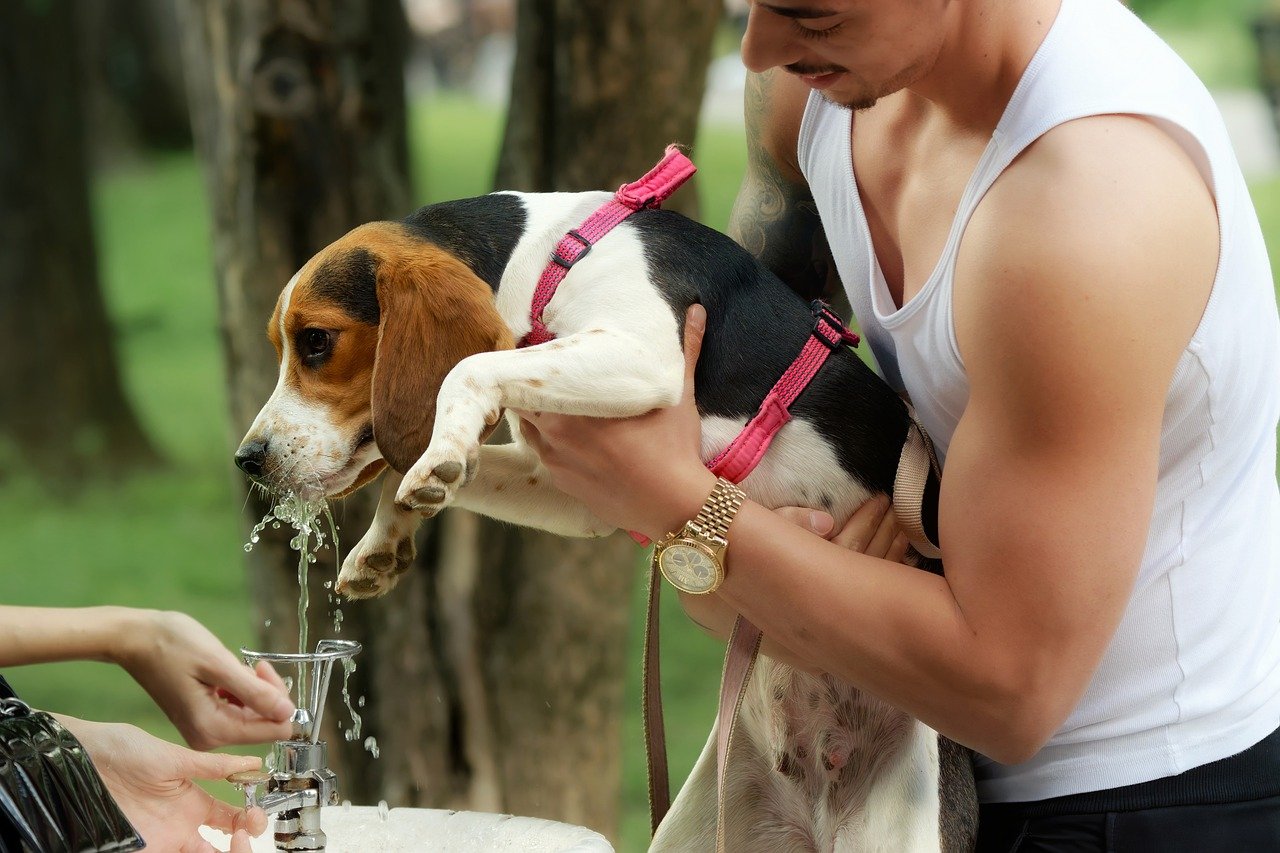
Kansas State University
As summer temperatures climb, a Kansas State University veterinarian urges pet owners to take precautions against seasonal hazards to keep their pets safe and healthy.
"Summer is a great time to be outside with your pets, but it also comes with some seasonal risks," said Susan Nelson, clinical professor and veterinarian at the Veterinary Health Center in the College of Veterinary Medicine. "By taking a few simple precautions, you can help ensure that your pet stays safe, healthy and happy all season long."
Nelson advises pet owners to begin or continue year-round protection against fleas, ticks and mosquitoes, all of which become more prevalent during the warmer months. These parasites can transmit serious illnesses such as Lyme disease, Plague and heartworm disease, which can be fatal if left untreated. Fortunately, many heartworm preventives also protect against common intestinal parasites, and many of the newer heartworm preventives on the market also kill fleas and ticks as well.
"It is important to keep your pet on preventives year-round due to variation in seasons and 'microclimates' that have developed in more urban areas, as they extend the duration we typically see some parasites, such as mosquitoes," Nelson said. "Because there are so many choices available now, it is important to speak to your veterinarian about which products are optimal for your pet, as they know both you and your pet the best."
Beyond parasite control, Nelson offers several key recommendations to help pets enjoy summer safely:
- Ease into activity. If your dog hasn't been active lately, reintroduce exercise slowly to avoid injury. Be alert for signs of heat stress like excessive panting, weakness, drooling or collapse.
- Never leave pets in vehicles. Even on mildly warm days, temperatures inside a parked car can quickly reach dangerous levels, leading to fatal heat stroke.
- Protect their paws. Hot pavement can burn sensitive footpads. Introduce rough surfaces gradually, and consider booties or protective balms.
- Practice water safety. Keep pools gated and outfit dogs with life jackets during boating activities, especially if they aren't strong swimmers. Nelson also recommends vaccination against Leptospirosis, a bacterial disease found in standing water that becomes more prevalent during periods of rain.
- Keep IDs current. Microchips, collars and tags increase the chance a lost pet will be returned safely. Even indoor pets should be properly identified.
Summer also brings increased risk of toxic exposures and seasonal irritants.
"Be cautious with summer landscaping and gardening products," Nelson said. "Some mulches, fertilizers and plants — such as lilies, azaleas and rhododendrons — can be toxic to pets."
Increased time outdoors can also trigger seasonal allergies, causing itching, sneezing or watery eyes in pets. Grass awns, chiggers and other hidden irritants may also cause skin infections or more serious complications.
Finally, Nelson reminds pet owners to always provide fresh food, water and shade. Food spoils more easily in warm weather and attracts insects. Dehydration can happen quickly when water bowls are not kept filled. For outdoor pets, be sure to check your yard at various times throughout the day to ensure there is always access to shade so pets can get relief from the heat.
"Summertime is a season many of us look forward to, but it is important to take basic precautions to help prevent our furry friends from physical hazards, toxins and parasites that accompany this time of year," Nelson said. "The keys to a healthy summer for your pet are to provide consistent fresh food, water and parasite preventives, as well as keeping them up to date on their vaccinations. Exercise your pets in the early morning or late evening to help avoid heat exhaustion, and follow the suggestions to avoid exposure to hazardous situations."
For more information on year-round pet health, consult your local veterinarian.





